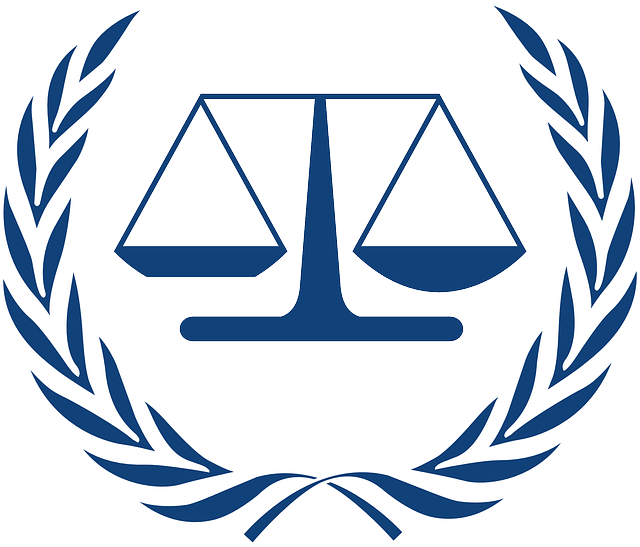Contempt of court, a serious legal offense, includes actions disrupting judicial proceedings. It arises from non-compliance with orders, miscommunication, and public disorder. Prevention involves meticulous record-keeping and clear communication. A strategic defense focuses on active compliance and legal counsel. Judges use discretion, considering severity and intent, to impose penalties fairly. Early mediation and clear court orders are proactive measures to avoid future contempt issues.
“Contempt of court, a legal concept shrouded in complexity, can pose significant challenges for individuals and organizations alike. This article offers expert insights into navigating the intricate world of contempt, providing a comprehensive guide to understanding, preventing, and resolving these disputes.
From defining contempt’s scope to exploring common triggers, we delve into strategic defenses and the role of judicial discretion. Learn about effective solutions and gain valuable knowledge on managing contempt challenges, ensuring compliance, and upholding legal integrity.”
- Understanding Contempt of Court: Definition and Scope
- Common Causes of Contempt Challenges
- Strategic Defense Mechanisms Against Contempt Accusations
- Judicial Discretion in Handling Contempt Cases
- Effective Solutions for Resolving Contempt Disputes
Understanding Contempt of Court: Definition and Scope

Contempt of court is a legal concept that refers to deliberate acts or omissions that undermine or interfere with the administration of justice. It can be understood as a failure to show respect for the authority and procedures of a court, often through disruptive behavior or non-compliance with court orders. The scope of contempt includes various actions, ranging from willful refusal to follow judicial instructions to public disorder or obstruction during court proceedings.
This legal issue arises when individuals or entities challenge or disregard court rules and orders, hindering the fair and efficient dispensation of justice. It’s important to recognize that contempt is not merely about disagreement but involves intentional acts that impede the court’s ability to function effectively. Understanding these definitions and scopes are crucial steps in navigating and resolving contempt challenges while upholding the integrity of the legal system.
Common Causes of Contempt Challenges

Contempt challenges often arise due to a variety of factors, with each case unique in its circumstances. Common causes include failure to comply with court orders, such as not attending court hearings or refusing to provide evidence as directed. This direct disregard for judicial process is a primary trigger for contempt proceedings, as it disrupts the orderly administration of justice.
Another significant cause is miscommunication or misunderstanding of legal requirements. Even well-intentioned parties may inadvertently violate court orders due to unclear instructions or a lack of legal counsel. These situations highlight the importance of meticulous record-keeping and open dialogue between all involved parties to prevent potential contempt challenges.
Strategic Defense Mechanisms Against Contempt Accusations

Facing contempt of court accusations can be a stressful and confusing experience. To mount an effective defense, it’s crucial to understand strategic mechanisms that can counter such allegations. One key approach is to demonstrate a genuine attempt to comply with court orders or rules. This involves keeping detailed records of actions taken, especially in cases of financial or logistical obligations. Open communication with the court can also dissipate potential contempt issues; judges often appreciate proactive efforts to resolve doubts or misunderstandings.
Additionally, legal counsel plays a vital role in navigating these complex matters. Lawyers can provide specific advice tailored to the case, ensuring every action aligns with legal standards. They can help articulate reasons for any perceived non-compliance, offer alternative solutions, and represent the individual’s position effectively before the court. A well-prepared defense, combined with sincere cooperation, can significantly mitigate the risk of contempt of court findings.
Judicial Discretion in Handling Contempt Cases

Judicial discretion plays a pivotal role in the handling of contempt of court cases. It allows judges to make decisions based on the unique circumstances presented, balancing the need for respect and adherence to legal procedures. This power is not arbitrary; it’s guided by established legal principles and the judge’s interpretation of those principles as they apply to the case at hand.
In exercising this discretion, judges consider factors like the nature and severity of the contempt, whether it was intentional or unintentional, and any extenuating circumstances. This approach ensures fairness, allowing for the possibility of leniency or stricter penalties depending on the merit of each case. It also underscores the court’s ability to adapt its response to reflect the specific context, fostering a sense of justice that is both robust and flexible.
Effective Solutions for Resolving Contempt Disputes

When faced with a contempt of court challenge, it’s crucial to understand that early intervention and open communication are often key to resolving disputes effectively. One of the most powerful tools in a lawyer’s arsenal is mediation—a structured negotiation process that encourages dialogue between opposing parties. By bringing both sides together, a neutral mediator can help identify underlying issues and facilitate a mutually agreeable solution without the need for lengthy court battles. This approach not only saves time and legal fees but also fosters better relationships between individuals or organizations involved.
Additionally, crafting clear and enforceable court orders is essential to preventing future contempt issues. Legal professionals should ensure that orders are detailed, specific, and easily understandable. Regular review meetings post-judgment can also be beneficial in monitoring compliance and providing a platform for addressing any emerging concerns promptly. These proactive measures can significantly reduce the likelihood of contempt challenges escalating and help maintain a respectful legal environment.






